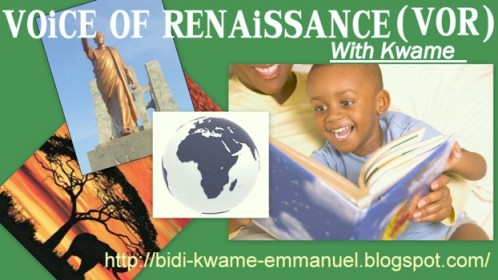Post by Kwame E Bidi.
I will start this post by invoking Stephen Hawkings, arguably the most celebrated scientist in modern times. In his critically acclaimed book, The Grand Design, which he co-authored with Leonard Mlodinow, he stated unapologetically thus, "...philosophy is dead." His reason is that "traditional philosophy has not kept up with modern developments in science, particularly physics. He continued, "Scientists have become the bearers of the torch of discovery in our quest for knowledge."
Almost all Ghanaian and African philosophers can be classified as traditional philosophers in a sense. Their scholarship forms the mainstream narrative on African philosophical thought. They helped in various ways to clarify the African traditional conception of the universe by distilling from centuries-old mythologies, taboos, oral stories, songs and symbols to provide a near-unified theme on African thought and beliefs. While this endeavor is commendable, it is also problematic.
Most of these thinkers got stuck in the mainstream conventional narrative and almost never moved on from there. There was hardly any identifiable crop of alternative thinkers who undertook rational distillation of the mythical narratives enshrined in African philosophy in light of contemporary knowledge (enabled largely by advancement in science and technology). Thus, concepts such as "spirit child" or Abiku, oracle, ghost, or ancestral worship with its attendant rituals, still remain unchallenged in any way. This gap, in my view, explains why Africa's 21st century still mimics European medieval eras, in its uncanny reception to everything otherworldly and supernatural, even among our respected scientists.
One social commentator, Bright Simons gave a disturbing account of a prominent Ghanaian astrophysicist who attempted to explain an eclipse in spiritual and biblical terms on national TV. In another instance, Dr. Gadzekpo, the Director of Ghana Institute of Languages, engaged the services of spiritualists to help ward off suspected ghosts at the institute's premises with taxpayers' money in 2012. In an interview he granted to Citi News, he said,
We have been having very serious nocturnal strange happenings at the Institute of late. It’s becoming very alarming... I am talking about ghosts and evil spirits who have been coming, banging doors and struggling over doors with the security guards and at times strangling them...”
Curiously, these outdated worldviews by the two personalities still remain unchallenged by any modern-day thinker. The silence of the public seems to betray the uncomfortable reality that these views are actually mainstream and not fringe ones.
Allied to the above, the rise of African consciousness in the post-colonial era centered for the most part on identity politics and occurred predominantly as a tacit backlash against the hegemonic Western scholarship, which effectively attempted to undermine the authenticity of African philosophy as a serious academic endeavor. Justifiably, African writers and thinkers turned to the continent's mythic past to recreate an authentic and distinct philosophy in the modern age, and in the process birthed what I call an anachronistic philosophy, which for the most part bears no practical relevance to the modern world.
The scientific era brought in its wake a system of thought that explained the world in realistic terms away from the dark and overly superstitious past where ghosts, spirit children, witchcraft and many such other unfounded beliefs resided. In many parts of Africa and other poor areas of the Global South, these beliefs are still potent in ways that affect everyday lives of people and stunts their material and scientific development.
There is a need to critically re-examine traditional African philosophy in light of today's knowledge. Rationality should be forced into the narrative. The goal will be to render African philosophy relevant to the practical realities of the modern world. Perhaps the traditional philosophers have laid down a foundation; it is time to build on it.

No comments:
Post a Comment